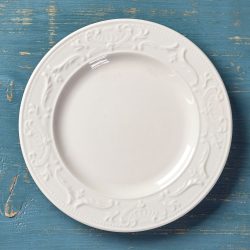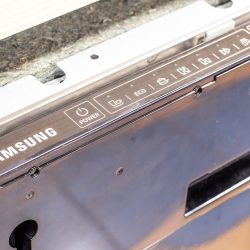The warning labels on packaging can be a little confusing. For example, you might be wondering if dishwasher safe and dishwasher proof mean the same thing. We researched these terms from multiple professional sources, so you'll know for sure.
Dishwasher safe refers to plates, bowls, and other items that are guaranteed to withstand dishwasher cycles. Dishwasher-proof items are utensils that can be washed in a dishwasher.
Now that we know the difference between dishwasher safe and dishwasher proof, we'll take a closer look at the symbols that signify these attributes. You might also be wondering what happens if you put something that isn't dishwasher safe into the dishwasher or how you can tell if a plastic container is dishwasher safe. For the answers to these questions and more, read ahead in this post to see what our research has uncovered.
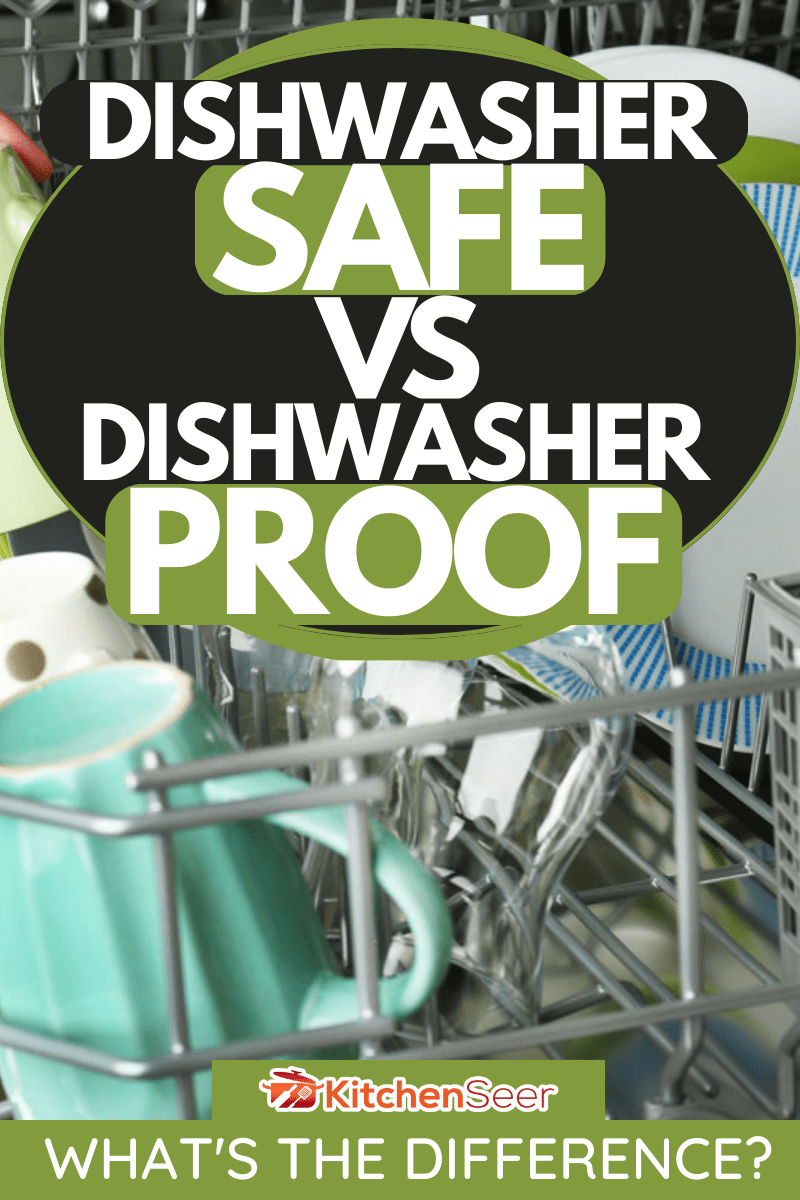
Dishwasher Safe Vs. Dishwasher Proof: What The Symbols Mean
The dishwasher-safe symbol is universally recognized as one that has what appears to be jets of water spraying downward. When you see this symbol, the item is guaranteed to be able to withstand the intensity of the dishwasher cycle.
You'll find various symbols on the packaging and even on the items themselves. When it comes to an item being dishwasher-proof, there isn't a uniform symbol to look for. But you will be able to tell by the symbol what it means.
The symbol will generally have kitchen items with a spray of water running over them. Sometimes, these items will be inside a rack. Look for these symbols to have a number above them, indicating the estimated cycles the item should be able to endure in the dishwasher.
When You Put Something That's Not Dishwasher Safe In The Dishwasher
Accidents happen, and sometimes we put items in a dishwasher that we shouldn't. But the consequences of doing so vary, depending on the item.
If it's unapproved plastic, the object might warp or melt. Older, painted glassware might have the paint run or melt away. Too thin glassware might break under the pressure and create a mess.
Many items will not be damaged after just one cycle in your dishwasher. They incur the damage after repeated runs through this appliance. A good rule to follow is to hand wash an item if you are not sure whether or not it is safe to wash in the dishwasher.
How Can You Tell If A Plastic Container Is Dishwasher Safe?
You might have had a bad experience washing plastic containers in a dishwasher. Most of us have pulled out the rack and seen a warped container, the result of putting an item inside this appliance that wasn't dishwasher safe. But this can be avoided.
Look for a symbol on the item (or its packaging) indicating whether it is dishwasher safe. These symbols are etched into the plastic and are easy to identify. If you don't see it, assume that you need to wash the item by hand.
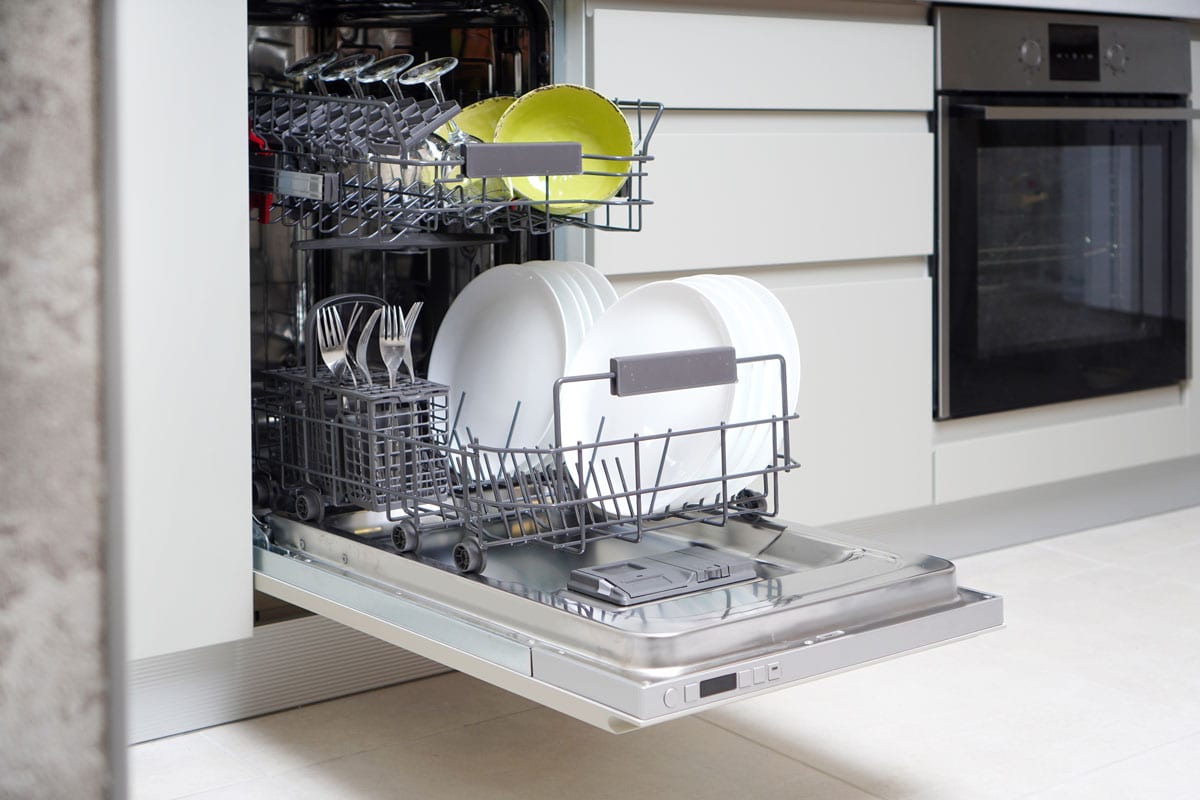
Is Old Tupperware Dishwasher Safe?
Most home kitchens have at least a few pieces of Tupperware. These items can last for decades and tend to accumulate in a person's cabinets over time. And while nearly every piece is made tough enough to be dishwasher safe, you should take heed with older pieces.
Nearly every piece made after 1979 will be okay to put into your dishwasher. If you believe your pieces are older than that, it's best to hand wash them to avoid them getting damaged.
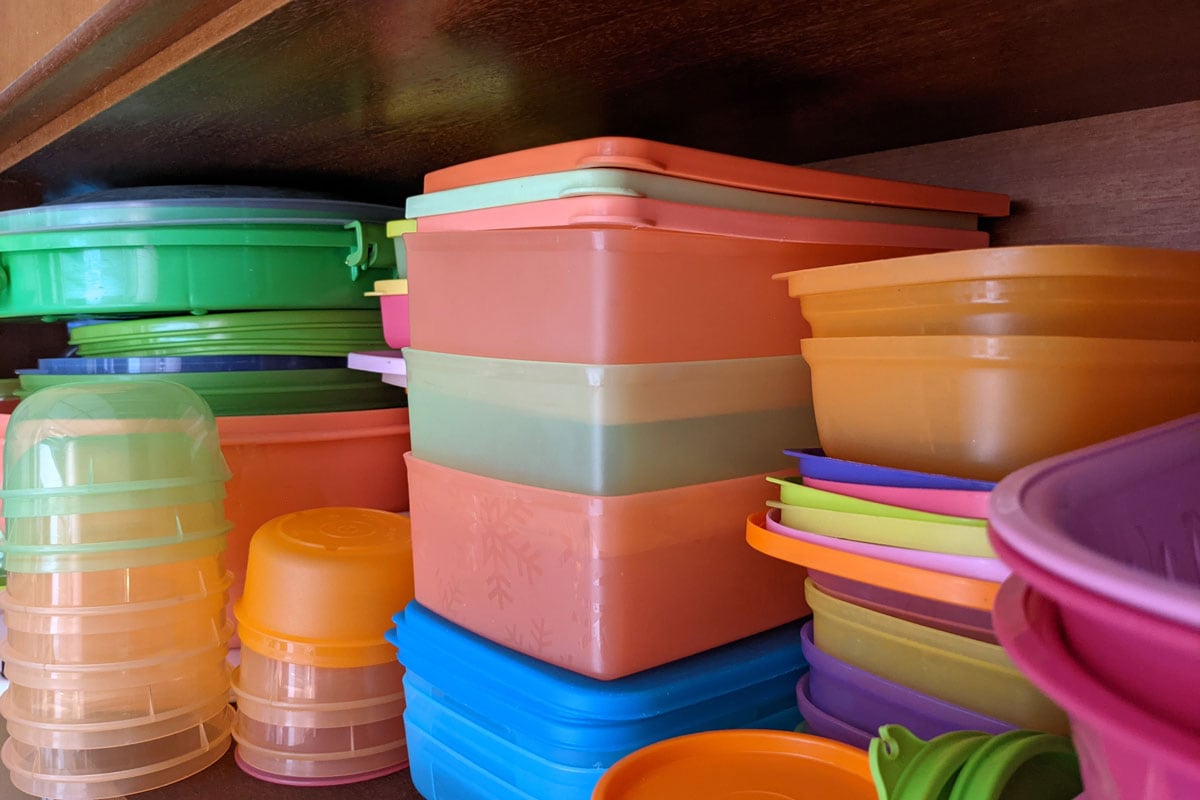
What Should You Never Put In A Dishwasher?
While the dishwasher is one of the handiest appliances in your kitchen, it isn't able to safely clean everything that you'll use. Placing dishes, glasses, and utensils inside the machine for cleaning can certainly save you a lot of time. But some items still need to be hand-washed.
Here, we'll look at some of the most common kitchen items that shouldn't be washed in this appliance. Some of them might surprise you.
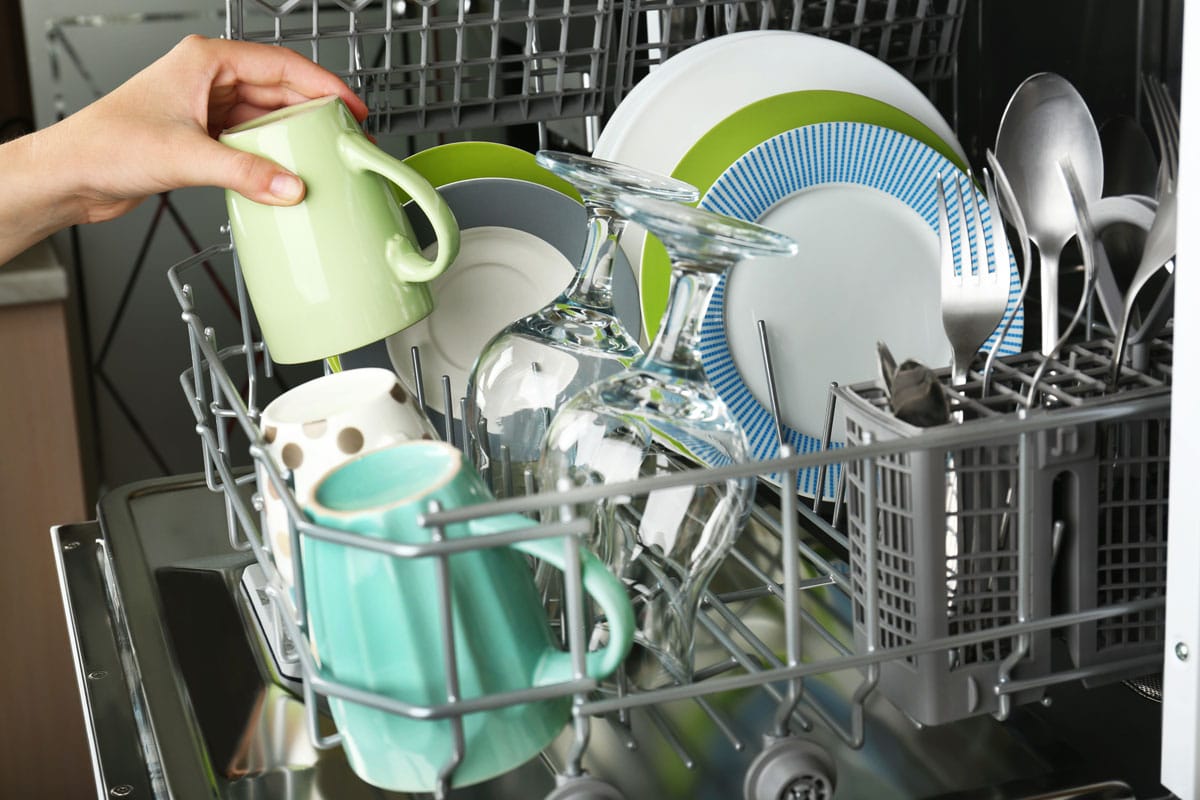
Cutlery
Sharp knives can damage the dishwasher. As they shift around during the cycles, the blades can nick the inside of the machine. Over time, this can lead to corrosion.
All this movement can also dull the blades of the knives. Not to mention that it's easy to cut yourself when removing a knife from the dishwasher after a cycle.
These items should be carefully hand-washed instead.
Cast-iron cookware
These amazing pieces of cookware have been used for centuries. To work their best, they need to be seasoned with oil. It's probably not a surprise that the dishwasher cycle will eat away at the layers of oil, making you start the seasoning process all over again.
These pots and pans require a good amount of elbow grease to clean by hand. But many chefs swear by them and feel that the extra time to clean and season them is well worth the effort.
Copper mugs
Copper mugs are a wonderful addition to any home bar. You can't make a Moscow mule without one! To keep these pricey mugs looking and performing their best, keep them out of your dishwasher.
The copper will react to the detergents. These cleaning agents will eat away at the copper and discolor the mug. Over time, the mugs will begin to corrode and be rendered unusable.
Nonstick pans
These are great examples of cookware that are often marketed as dishwasher safe but should probably be washed by hand. The non-stick coating will wear and peel over time from the intense heat of the drying cycle. We recommend always hand washing these pans.
But if you do decide to pop one into your dishwasher, it's important to keep them out of the drying cycle. This is where the heat acts against the coating the most. Opt for air drying or hand drying the nonstick pans.
Ceramic pans and lids
These items can withstand intense heat. But the acidity in the dishwasher detergents will eat away at the ceramic coating. Like the other items on this list, it's best to hand wash anything that has a ceramic coating.
Insulated glasses
The air layer separating the two plastic components relies on an airtight seal. The heat from the dishwasher can damage this seal, making moisture leak into it. This will make the glass cloudy.
When moisture can leak in, the insulated glass loses its ability to keep hot liquids hot and cold liquids cold. Though some brands will market themselves as dishwasher safe, proceed with caution. Skip the high heat setting on the appliance, and only put the dishwasher-safe items on the top rack.
It's best to hand wash these glasses, just to be safe. For stubborn stains, baking soda and warm water work well to get your glass sparkling again.
Vintage China
Though you might be tempted to pop your nice China into the dishwasher after a meal, you should be careful. Older pieces can be greatly damaged by the dishwasher cycle.
Extreme heat can damage the already delicate properties of these pieces. The detergents used can also be a hazard to them. This is especially true for pieces that have been repaired.
Protect your older China by always carefully hand washing them.
Wooden bowls and utensils
The natural oils on these items will be stripped away by the intensity of the dishwasher cycle. The wood will dry out, making the item brittle and eventually unusable.
The best way to clean these items is with warm water and mild dish detergent. Consider using Dawn and a good sponge. It will take a bit more time but will save you replacement costs.
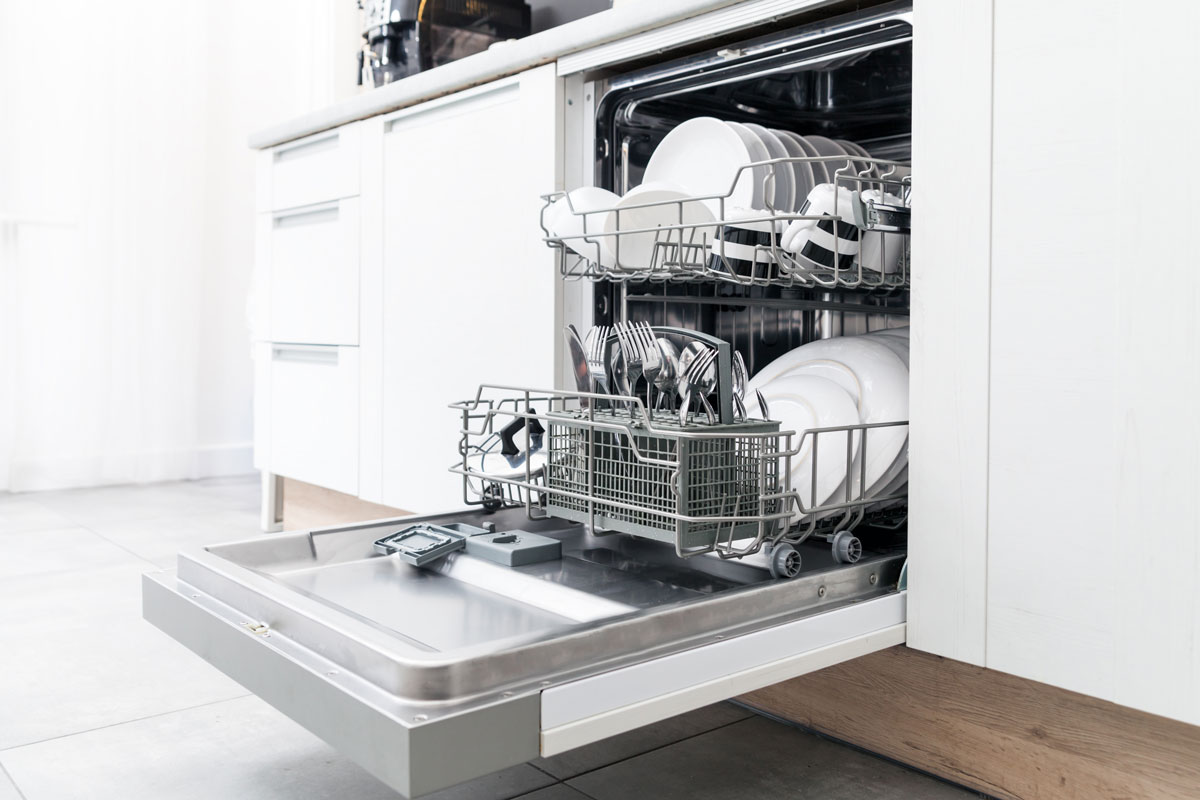
In Conclusion
The terms dishwasher safe and dishwasher proof might sound interchangeable, but they are not. You should understand what each term means and look for the symbols before running anything through a dishwasher cycle.
Be especially careful when considering whether or not to clean old dishes in a dishwasher.
We hope this post answered all your questions. For more helpful information, we suggest reading the following posts:
KitchenAid Dishwasher Not Getting Or Filling With Water—What To Do?
Kitchenaid Dishwasher Smells Like It Is Burning – Why? What To Do?
What Dishwasher Detergent Does Bosch Recommend?


